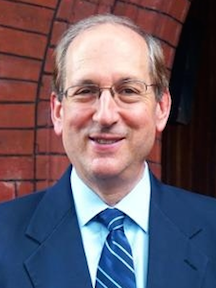America’s unique higher education system, long championed by Phi Beta Kappa, is deeply in need of public and private support at this critical moment. At a time when voices across the political spectrum have questioned the health and vitality of our democracy, a reinvigorated national commitment to accessible and inclusive liberal arts education will allow our nation to embrace the openness of mind and spirit that is essential for a self-governing people in a democratic society. We at Phi Beta Kappa have a crucial role to play as advocates for these values.
The fundamental need for liberal education in a functioning democracy was affirmed in a 2020 report by Anthony P. Carnevale and his colleagues at Georgetown University’s Center on Education and the Workforce. “The Role of Education in Taming Authoritarian Attitudes” examines the role of colleges and universities in relation to the challenge of rising authoritarianism at the global level and the resulting threat to democracies.
The study points to the ways in which authoritarianism tends to flourish when social norms and personal security are threatened. Historic inequalities of wealth and income, the devastating impact of Covid-19, and divisions over issues of racial and social justice, including the rights of immigrants, have fueled feelings of vulnerability among many Americans. But a liberal arts education can serve as a bulwark against this sense of vulnerability.
Liberal education in particular cultivates the capacity to deal with complexity and diversity and not be threatened by differences of opinion. Exposure to diverse contexts, histories, ideas, lifestyles, religions, ways of life, and cultures diminishes the likelihood that differing worldviews will trigger authoritarian responses and increases the chances of their being countered with evidence. Engagement with the liberal arts also encourages empathy and tolerance, and generally leads to greater political participation and civic engagement.
Comparing the attitudes and preferences of people from 51 countries, the Georgetown study found that Americans’ authoritarian inclinations are “moderate,” ranking only 16th worldwide on par with Estonia, Chile, and Uruguay. Importantly, the study’s key findings specifically confirmed what we have long asserted: a liberal arts education mitigates most effectively against the adoption of authoritarian attitudes. The study found that liberal arts students are less inclined to adopt attitudes of political intolerance, signified by the inclination toward the repression of free speech, xenophobia, nativism, racism, ethnocentrism, and religious sectarianism.
Democracies with higher levels of education have greater levels of political tolerance and are more likely to survive. The report thus concludes that “higher education is the cornerstone of successful democracies not easily shaken by authoritarian threats.”
At the beginning of her term as Phi Beta Kappa’s president, Lynn Pasquerella urged delegates to the 2018 ΦBK Triennial “to collectively reaffirm the role that a liberal education plays in discerning the truth . . . the ways in which a liberal education promotes an understanding that the world is a collection of interdependent yet inequitable systems . . . and the ways in which higher education fosters equity and justice, locally and globally.” As we prepare for our next Triennial this coming summer, her words continue to challenge and inspire us.
Frederick M. Lawrence
Secretary and CEO




